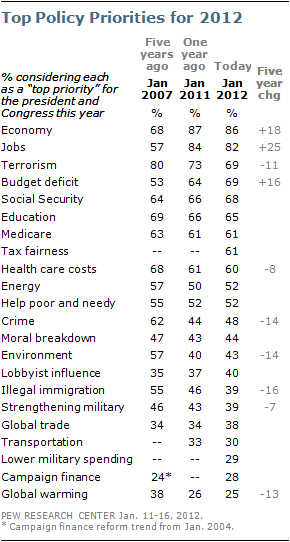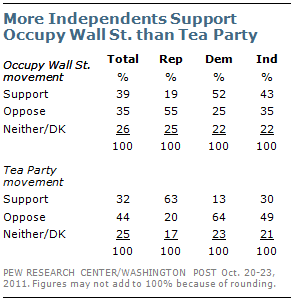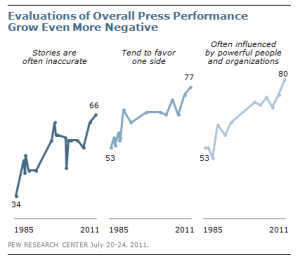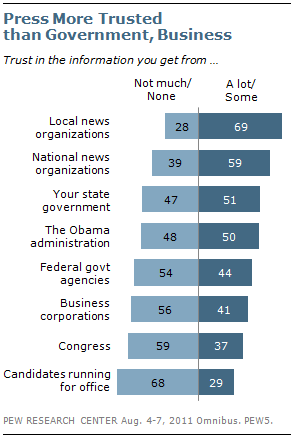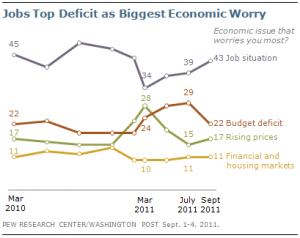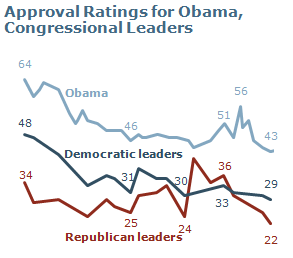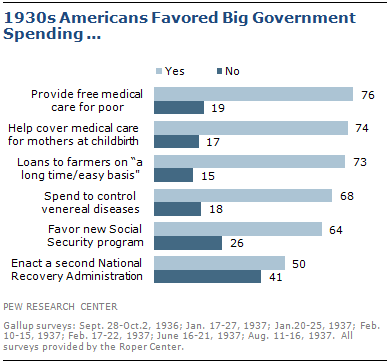Economic issues continue to be the public’s highest priority as the 2012 State of the Union approaches. Fully 86% say that strengthening the economy should be a top priority for the president and Congress this year, and 82% rate improving the job situation as a top priority.
 The annual policy priorities survey by the Pew Research Center for the People & the Press, conducted Jan. 11-16 among 1,502 adults, finds that the federal budget deficit stands out as the fastest growing policy priority for Americans, largely because of increasing Republican concerns about the issue. Fully 69% rate reducing the budget deficit as a top priority — the most in any of the Pew Research Center’s annual policy priority updates going back to 1994.
The annual policy priorities survey by the Pew Research Center for the People & the Press, conducted Jan. 11-16 among 1,502 adults, finds that the federal budget deficit stands out as the fastest growing policy priority for Americans, largely because of increasing Republican concerns about the issue. Fully 69% rate reducing the budget deficit as a top priority — the most in any of the Pew Research Center’s annual policy priority updates going back to 1994.
Read full article at:PEW 2012 Priorities
